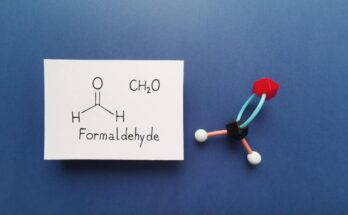Wearing the appropriate personal protective equipment—also known as PPE—will greatly impact the quality and safety of your job. The last thing you want is smashing your hand due to wearing the wrong gloves, so it’s necessary to understand the gloves you need for the job and keep them lasting. Here are the five best gloves for industrial jobs to work without worry.
Fabric and Cotton Gloves
While cotton and fabric gloves are thin and breathable, they protect the skin from materials and tools you handle daily. These gloves provide essential protection against jagged materials, open flames, hot surfaces, and puncture hazards.
Cotton or fabric gloves also protect against minor abrasions and scrapes while keeping your hands clean. Lastly, they add a layer of warmth under larger gloves.
Leather Gloves
Leather gloves are among the most common, yet reliable, gloves you can use in the industrial world. Leather is considered one of the best glove materials for industrial jobs because of its durability, excellent grip, protection from sharp or abrasive surfaces, and spark resistance.
Additionally, leather gloves protect your hands from moderate heat levels due to friction and welding. As long as they are well taken care of, don’t worry about drying them out. They are highly useful in general labor work and construction.
Coated Fabric Gloves
Unlike standard fabric gloves, coated fabric gloves have a higher level of puncture and cut resistance. Additionally, they have improved chemical resistance, and protect against concrete product alkalinity. These coating materials include nitrile, latex, polyurethane, and polyvinyl chloride.
A fantastic benefit of nitrile gloves is that they offer waterproofing and longer shelf-life expectancy. You can find coated gloves covering the palm, knuckles, fingertips, or fully dipped. Some jobs that benefit from coated gloves include mechanical, plumbing, and medical occupations.
Puncture-Resistant Gloves
If you work around sharp debris, surfaces, and materials, puncture-resistant gloves make a fantastic companion. Depending on the amount of cutting you need, there are multiple cut grades and puncture-resistance for work gloves. For occupations such as rigging and heavy construction to ironwork and mining, puncture-resistant gloves have Kevlar woven into the fabric to prevent puncture incidents.
Chemical and Liquid-Resistant Gloves
When you work around chemicals and other harmful materials, prolonged direct exposure can lead to long-term health effects. Butyl rubber, neoprene, and nitrile rubber will protect against potential chemical contact, offering chemical or liquid-resistant materials.
Butyl protects against alcohols, nitric acid, sulfuric acid, hydrochloric acid, and peroxides. Neoprene can keep you safe from fuels, hydrocarbons, hydraulic fluids, gasoline, and organic acids. Lastly, nitrile protects against greases, petroleum oils, solvents, acids, and bases.
Being safe on the job matters. So, choosing suitable gloves will further your protection and keep you moving. Don’t neglect your safety.



